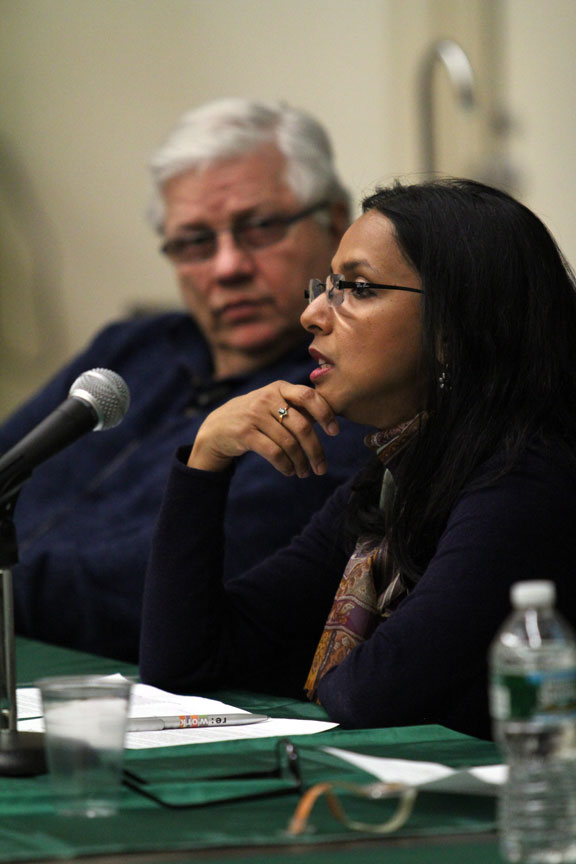
Institutional violence can be just as egregious as domestic or sexual violence, panelists said on Friday.
The panel, composed of Binghamton University professors to celebrate International Women’s Day, covered what panelists said is the most common human rights violation today: violence against women.
Panelist Joshua M. Price, an associate professor of sociology at BU, said that violence against women is often hidden in plain view. Price, recently witness to the health care at the Broome County Jail, reflected on the conditions at the facility.
“During one of my visits [to the Broome County Jail], an unassisted pregnant woman whose feet were shackled came into the room,” Price said. “I wondered what would happen if she fell, and if she could catch herself without her feet. She was also currently in solitary confinement.”
Price said the women are provided poor prenatal care, defying a woman’s reproductive rights to have a child and care for it.
Price said that the deportation of women is also a threat to reproductive justice.
“More than 400,000 deportations last year occurred in the U.S.,” Price said. “These deportations uproot women from their lives and take women from their children.”
Panelist Mahua Sarkar, an associate professor of sociology, Asian and Asian American studies and women’s studies, said that violence against women takes many forms, citing the detrimental effects of uranium mining as an example.
“The effects of uranium mining are gender-related because it affects the woman’s ability to reproduce,” Sarkar said. “Women whose health have been affected by uranium mining go through five to six miscarriages before they finally have mutilated children.”
Sarkar also discussed domestic violence against women and the roles that men and masculine gender roles play in perpetuating the violence.
“It seems that the theme is not that all violence against women is male violence, but is structural forms of violence,” Sarkar said. “Violence occurs because it is a part of the power structure, and women may sexually assault other women in positions of power — violence happens through power.”
Panelist F. Sonia Arellano-Lopez, an assistant research professor at the Institute of Global Cultural Studies at BU, agreed.
“Violence against women is more complex than just men versus women,” Arellano-Lopez said.
Sarkar said that individuals have to stop their own violent behavior, before violence can be prevented on a more global scale.
“There is much to be done to implement legal action, but if we don’t change on a personal level, nothing will happen,” Sarkar said. “Men end up in positions of power more often, and you need to stop and think about what ways you act as an individual.”
Lissett Ortiz, a junior majoring in environmental science, said she would have liked the panel to provide more solutions to violence against women.
“The panel was very informative, but a bit discouraging because now I know about the ways of which violence is directed against women, but do not know how to stop it,” Ortiz said.


